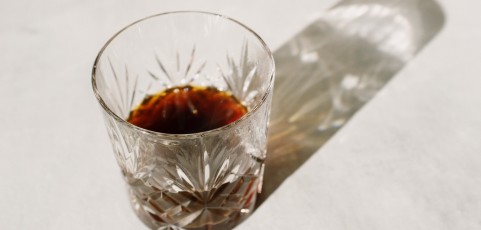In Los Angeles and other cities across the U.S., drinking alcohol is a common social activity. Working folks meet up for happy hours after the day is done throughout the work week; wine and craft beer festivals do the weekend landscape; start-up companies even offer beer kegs at the job; holidays are marked with cocktails and other tipples. Americans have been drinking alcohol for as long as the nation has been around, and even did so when it was illegal during Prohibition. Lately, however, alcohol use has been increasing, and this increase has led to some health issues.
Moderate drinking versus binge drinking versus heavy drinking
The Centers for Disease Control and Prevention (CDC) has introduced guidelines for alcohol use for Americans, including no more than two standard drinks per day for men and one for women. These standard drinks are defined as 12 ounces of beer, five ounces of wine, and 1.5 ounces of liquor or distilled spirits (like vodka, whiskey, or gin). Following these recommendations would make you a “moderate” user of alcohol, and would generally keep you from the major harms that alcohol can cause.
Binge drinking, on the other hand, is considered a pattern of alcohol consumption that brings a person to a level of intoxication. This is defined as consuming five or more drinks in a single sitting for men, or four or more drinks for women, usually within two hours. According to the National Institute on Alcohol Abuse and Alcoholism, the prevalence of binge drinking has been increasing in the past two decades, with more than 26 percent of people over age 18 reporting they engaged in binge drinking in 2018.
Heavy drinking, defined as consuming eight or more drinks a week for women and 15 or more for men, is also an issue. While most heavy drinkers are unlikely to be dependent on alcohol, heavy drinking can still affect an individual’s health in negative ways.
How binge drinking affects us
Alcohol is the third-leading cause of death in the U.S., after tobacco usage and poor diet. An estimated 88,000 people die of alcohol-related causes in America every year, including 31 percent of driving fatalities. On a personal level, excessive alcohol use can lead to impaired driving, alcohol poisoning, risky sexual behaviors, and an increase in violent behavior. Long-term heavy alcohol use can lead to several serious chronic health issues, including:
- High blood pressure
- Heart disease
- Stroke
- Liver disease and cirrhosis
- Digestive issues
- Cancer of the breast, mouth, throat, esophagus, liver, and colon
- Memory problems
- Mental health issues like depression and anxiety
- Social problems
- Alcohol dependence
Alcohol abuse costs the United States an estimated $250 billion each year in health care and other costs, and three-quarters of this total cost is related to binge drinking.
What you can do to prevent harm from alcohol
The best thing you can do to prevent the negative effects of alcohol is not drink, or try to drink in moderation. There are other steps you can take to reduce the harmful effects of binge drinking or heavy drinking as well, including acupuncture and Oriental medicine.
In Oriental medicine, the liver is one of the most important organs in the body, mirroring the small intestine, and the two must be treated together. Blood, energy (“chi”), and nutrition need to flow to the liver for it to work properly, much in the same way that a plant needs water, sunlight, and soil to grow. If there are any issues with the liver such as cirrhosis or infection, the flow of chi to the liver will be slowed down or blocked altogether, which is when problems arise throughout the body. Acupuncture can help to open this blockage so that the blood and chi flow smoothly to the liver and balance can be restored with other organs like the small intestine.
Oriental medicine also addresses dependence and addiction as stemming from a lack of balance and a weak heart. These imbalances can arise from experiences that cause low self-esteem, such as failures in business, a life goal, or love. Often people facing these issues turn to alcohol or drugs to avoid having to face the pain or hard feelings, and their heart is weakened in the process. Again, balance and flow are the most important functions in Oriental medicine, and acupuncture can help to bring out self-resistance from inside the body to heal this balance, as well as the heart.
There are also herbal medicines that Dr. Ko may recommend in conjunction with Oriental medicine and acupuncture. For instance, beefsteak plant, five-flavor berry, Giji and Glycyrrhiza uralensis all help to detoxify and increase circulation in the body.
Overall, it’s best to follow the CDC’s guidelines and try to keep your alcohol use to a minimum while you add in acupuncture and Oriental medicine. If you’re looking for help reducing your dependence on alcohol or helping reduce the negative effects of heavy drinking, make an appointment at 120 Acupuncture Clinic today.







